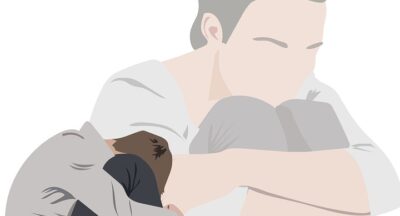
A proactive approach to anxiety: Antithesis of the big pharma (more reactive approach with drugs)

Anxiety has deep-rooted origins that stem from a combination of biological, psychological, and environmental factors. Biologically, it is linked to the body’s stress response system, involving the release of hormones like cortisol. Genetic predispositions may also contribute, as individuals with a family history of anxiety disorders may be more susceptible.
Psychologically, past traumatic experiences, high-stress environments, or a history of negative conditioning can contribute to the development of anxiety. Cognitive factors, such as persistent worry or irrational fears, play a role in sustaining anxiety.
Environmental factors, including early life experiences, societal expectations, and ongoing stressors, can significantly impact anxiety levels. Childhood experiences, such as trauma or a lack of emotional support, may contribute to the development of anxiety disorders later in life.
Additionally, personality traits, such as perfectionism or a tendency to overthink, may increase vulnerability to anxiety. The interplay of these biological, psychological, and environmental elements creates a complex web that contributes to the onset and persistence of anxiety. Understanding these factors is essential for developing effective strategies to manage and alleviate anxiety.
There are effective strategies for addressing anxiety attacks and implementing coping mechanisms to recognize signs before they dominate your thoughts and behavior. Completely eliminating all attacks is challenging without resorting to heavily numbing medications, a state that the pharmaceutical industry may prefer. However, there are holistic approaches to assess and significantly reduce symptoms. It’s important to note that this is not a foolproof method, as individuals experience and cope with anxiety differently, resulting in varied symptoms across the spectrum.
Managing your symptoms proactively is essential. Here are several strategies to help prevent anxiety before it takes hold:
- Deep Breathing and Mindfulness: Engage in deep breathing exercises to calm the nervous system. Focus on your breath and practice mindfulness to stay in the present moment.
- Positive Visualization: Imagine a positive outcome or a calming scenario. Visualization can help shift your focus away from anxious thoughts.
- Regular Exercise: Incorporate regular physical activity into your routine. Exercise releases endorphins, which act as natural mood lifters and stress relievers.
- Healthy Lifestyle Choices: Prioritize a balanced diet, adequate sleep, and hydration. A healthy lifestyle contributes to overall well-being and can reduce susceptibility to anxiety.
- Time Management: Plan and organize your tasks to avoid feeling overwhelmed. Break down large tasks into smaller, manageable steps.
- Limit Stimulants: Reduce or eliminate the consumption of stimulants such as caffeine and nicotine, especially in the hours leading up to potential anxiety-inducing situations.
- Establish a Routine: Create a daily routine that includes time for self-care, relaxation, and activities you enjoy. Predictability can help create a sense of stability.
- Connect with Others: Maintain a support network of friends, family, or colleagues. Sharing your feelings with others can provide perspective and emotional support.
- Learn to Say No: Maintain a support network of friends, family, or colleagues. Sharing your feelings with others can provide perspective and emotional support.
- Journaling: Write down your thoughts and feelings. Journaling can help you process emotions and gain insight into recurring patterns.
- Mind-Body Techniques: Explore mind-body techniques such as yoga or tai chi. These practices combine physical movement with mindfulness and can be effective in reducing anxiety.
- Professional Support: If anxiety is a persistent issue, consider seeking professional help. A therapist can provide coping strategies and support tailored to your specific needs.

Remember that everyone is different, and what works for one person may not work for another. It may take some trial and error to find the combination of strategies that works best for you. Additionally, if anxiety is significantly impacting your life, it’s crucial to consult with a mental health professional for personalized guidance and support.
dr.dan
Related Posts
The many ugly faces of depression: What should you expect when experiencing Anhedonia and the many symptoms, causes and treatment that are available when dealing with it.
Anhedonia is closely associated with depression and is often considered a...
The Science Behind Exercise Reducing Symptoms of Depression: The Connection Between Physical Activity and Mental Health
Depression, a prevalent mental health disorder, affects millions of people...
Complexities of S.A.D (Seasonal Affective Disorders): Coping with mood disorders related to winters and cold temperatures. Effective Strategies that can work during these long winter months to alleviate these moods.
Seasonal Affective Disorder (SAD) is a type of mood disorder that recurs...
A proactive approach to anxiety: Antithesis of the big pharma (more reactive approach with drugs)
Anxiety has deep-rooted origins that stem from a combination of biological,...




